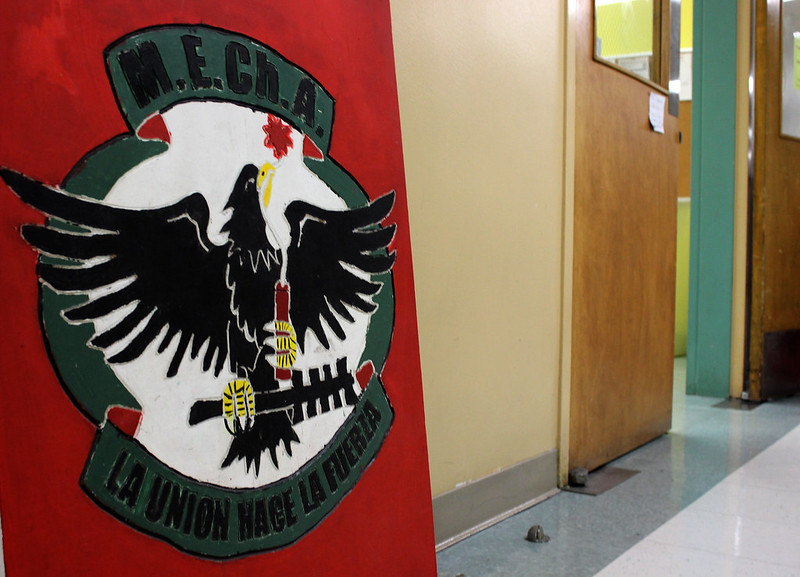M.E.Ch.A. de CSUN hosts first meeting via Zoom
Movimiento Estudiantil Chicanx de Aztlán, also known as M.E.Ch.A., was established as a national activist group in the late 1960s.
September 6, 2020
Movimiento Estudiantil Chicanx de Aztlan de CSUN hosted their first meeting of the fall semester via Zoom on Friday to greet their new members for the semester and set goals as an organization. A group of approximately 15 students and faculty were in attendance.
Movimiento Estudiantil Chicanx de Aztlán, also known as M.E.Ch.A., was established as a national activist group in the late 1960s. M.E.Ch.A groups exist in middle school, high school and collegiate campuses throughout the United States.
Much has changed since its establishment, but the group’s mission to embrace culture and encourage activism has remained the same.
Ivan Salínas, the Internal and External Representative for M.E.Ch.A. de CSUN, said they will be offering workshops and group study sessions through Zoom.
Events that they would normally have in person, such as the annual Día de los Muertos — typically celebrated at the Chicano House — had to be changed into a virtual format.
M.E.Ch.A. de CSUN organized a march on July 6 where around 50 protesters marched to CSUN Chicano House, to bring awareness about the murder of Vanessa Guillén, the 20-year-old U.S Army soldier who disapeared from Fort Hood, a military base in Texas.Her body remains were found in July.
Some members also attended the 50th anniversary Chicano Moratorium at the Ruben Salazar Park in East Los Angeles on Aug. 29 to commemorate the movement.
The group also advocated for AB 1460, a three-unit ethnic studies course graduation requirement throughout the California State University system. AB 1460 focuses on four historically defined racialized groups: African Americans, Native Americans, Latino Americans and Asian Americans.
This summer, they held a letter writing event over Zoom to encourage Gov. Gavin Newsom to sign it into law.
“It is a step forward in the demands that people have been making,” said Salínas. “It starts through education and hopefully it will support faculty of color.”
Salínas said in an Instagram post, that they hope to work with faculty in the Chicano studies department to organize virtual events. He also said the group prefers to use the term Chicanx to be gender inclusive and anyone who likes to be involved in social justice organizing can join.
M.E.Ch.A. de CSUN’s current members include Salínas and their secretary, Barbara Villasenor. They are currently looking for students to fill other officer positions.


